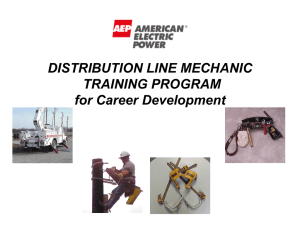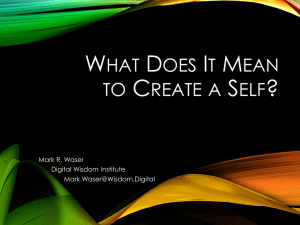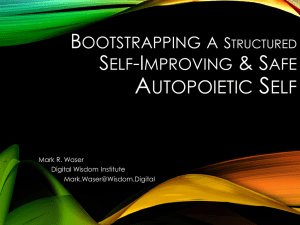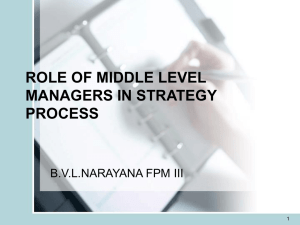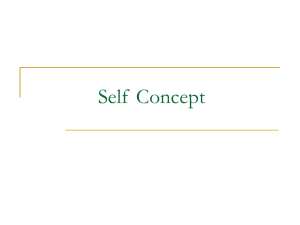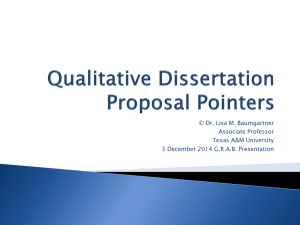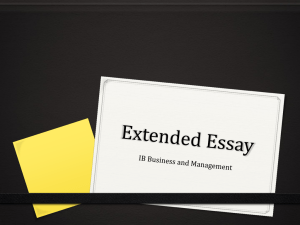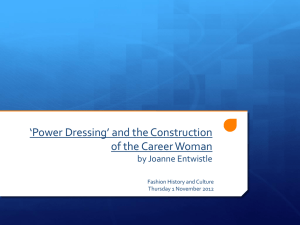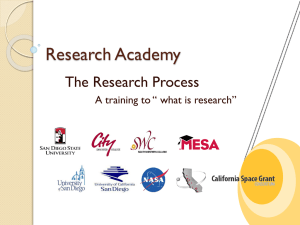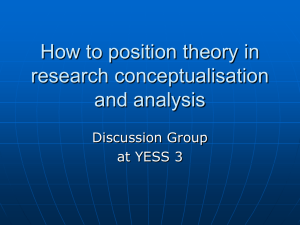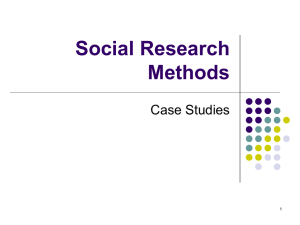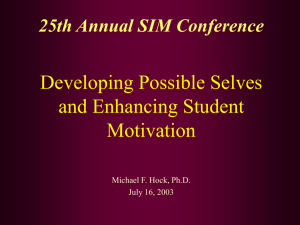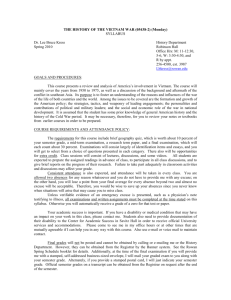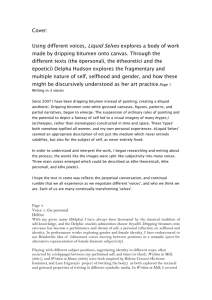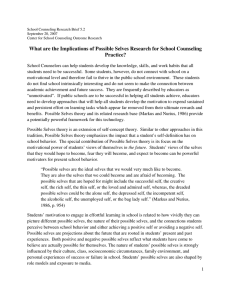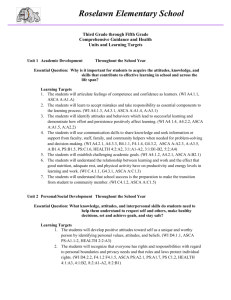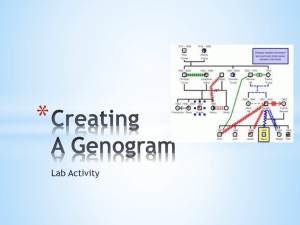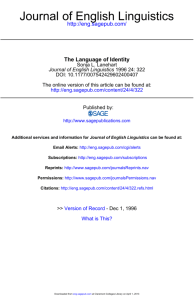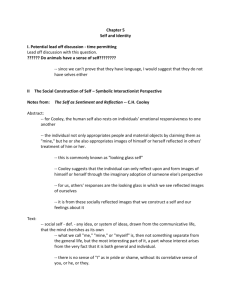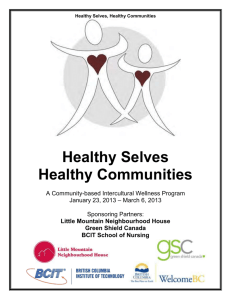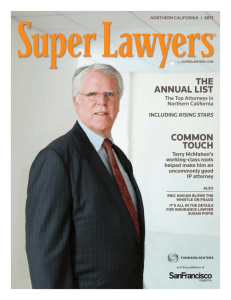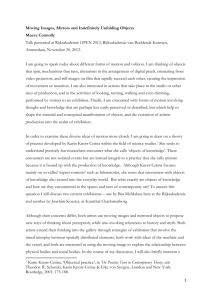When I Grow Up PowerPoint
advertisement
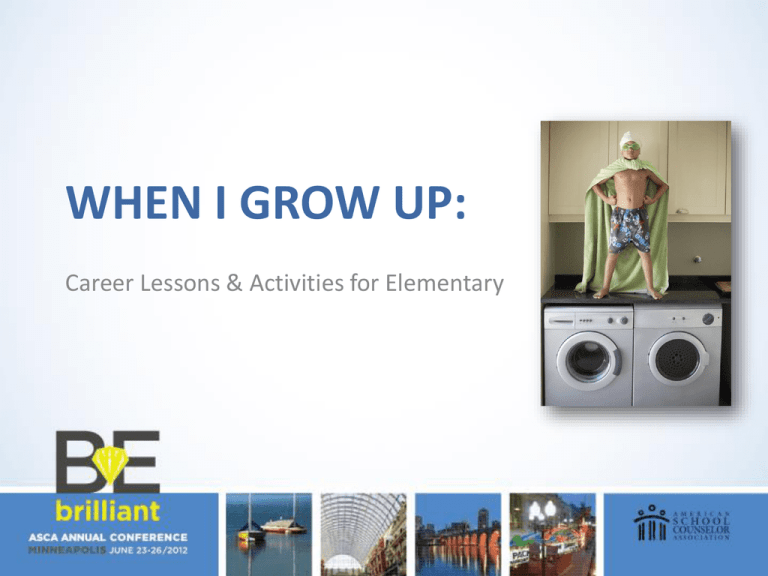
WHEN I GROW UP: Career Lessons & Activities for Elementary HANDOUTS http://richardcleveland.me OUR TIME TOGETHER • • • • Setting the Stage Theoretical Foundation Implementation Working Time INTRODUCTION • Standards: o Investigate world of work & self (Curiosity) o Achieve aspirations successfully (Goals) o Relation of personality, education, etc. to world of work (Meaning-Making) National Standards for School Counseling Programs (Campbell & Dahir, 1997) ASCA Student Standards (2004) ASCA National Model (2012) INTRODUCTION • Criticisms of career at the ES level o o o o Time Too Much Pressure Inappropriate No Structure THEORETICAL FOUNDATION “We guide our boys and girls to some extent through school, then drop them into this complex world to sink or swim as the case may be. Yet there is no part of life where the need for guidance is more emphatic than in the transition from school to work – the choice of a vocation, adequate preparation for it, and the attainment of efficiency and success.” - Frank Parsons (1909) THEORETICAL FOUNDATION Research • Sparse (McMahon &Watson, 2005; 2008) • Helwig, A. A. (2008). From childhood to adulthood: A 15-year longitudinal career development study. Career Development Quarterly, 57(1), 38-50. THEORETICAL FOUNDATION Literature • Multiple Influences (i.e. culture, family, community, etc.) (Arthur & McMahon, 2005; Gibson, 2005; Turner et al., 2004) • Holistic (McMahon & Watson, 2008) • Creates Vocational Identity (Mittendorff et al., 2011) • Structured & Integrated (Hartung et al., 2008; Watson & McMahon, 2008; Wood & Kaszubowski, 2008) THEORETICAL FOUNDATION Theory • Super’s Career Development Stages (Super, 1990) • Social Cognitive Career Theory (Turner et al., 2004) • System’s Theory Framework (Arthur & McMahon, 2005) THEORETICAL FOUNDATION Approach that is: • Holistic & Developmental • Constructivist & Systemic • Structured, Multi-Faceted, & Integrated with Academics IMPLEMENTATION • Artistic displays (i.e. collages, murals, etc.) • Educational careerfocused games • Field Trips • Informational Interviewing • Job Shadowing • Mentors • Role-Playing • Live Speakers (PTA, community, associations, etc.) • Career/Fair Day • Websites (research, interactive, assignment, etc.) IMPLEMENTATION • Books & Narrative (Eppler, Olsen, & Hidano, 2009) • Dino Cards • Integrating with Curriculum (i.e. classroom lessons/activities, PSC curriculum, etc.) • Family Career Tree (Gibson, 2005) • Career Genogram (Gibson, 2005) • Possible Selves (Markus & Nurius, 1986; Shepard & Marshall, 1999) • Puppets BOOKS & NARRATIVE • • • • Jobs People Do Brooks & Litchfield When I Grow Up Douglas & Hurt-Newton My Name is Not Isabella Fosberry & Litwin My Name is Not Alexander Fosberry & Litwin DINO CARDS • Wisconsin Career Information Systems, University of Wisconsin DINO CARDS INTEGRATING WITH CURRICULUM • Classroom Lessons / Academic Standards • PSC Curriculum o Committee for Children o Dependable Strengths INTEGRATING WITH CURRICULUM • Logistics • Integration & Relevancy FAMILY CAREER TREE & GENOGRAM • Impact of parents/caregivers & family systems • Attending & Processing o How do they approach the task? Encourage initiative. Notice emerging patterns. o Feedback to develop autonomy rather than inferiority. Facilitate expression of beliefs about careers and expectations. FAMILY CAREER TREE & GENOGRAM Office secretary Fixed furnaces and heaters Office manager Diapers! Raised kids at home Asst. Teacher Getting well Chef Teacher Barista Made airplanes at Boeing General Contractor POSSIBLE SELVES • Taking “Possible Selves” activity (Markus & Nurius, 1986) and adjusting for career (Shepard & Marshall, 1999) • What are students’ “Hoped-For Selves”? o Positive projections of self & vocation • What are students’ “Feared Selves”? o Negative views of self & vocation POSSIBLE SELVES What do you hope to become? • • • • • Firefighter Nurse Diesel Mechanic Teacher Auto Mechanic What do you dread becoming? • Don’t have a job • Doing something boring • Being a computer worker because dad doesn’t like it POSSIBLE SELVES What do you hope to become? Make really good money • Firefighter Not a lot of guys do this • Nurse Takes a lot ofMechanic school • Diesel • Teacher • Auto Mechanic What do you hope to become? 1. 2. 3. 4. 5. Firefighter Diesel Mechanic Nurse Auto Mechanic Teacher Helps people PUPPETS • Fun • “Teach” Mr. Cleveland about careers • “Catch” Mr. Cleveland when he’s wrong WORKING TIME Theory + Practice = Creating a Plan • Create a Career Guidance Unit using a Closing The Gap (CTG) Action Plan template WORKING TIME • Create a Career Guidance Unit: o Keep the Theoretical Approach in Mind o Ideas & Interventions (those presented or your own) o Use the CTG Action Plan Template to Guide/Structure WORKING TIME WORKING PACKET 1. CTG Action Plan Template 2. ASCA National Standards – Career Domain 3. Article: Helwig (2008) 4. Article: Mittendorff (2011) 5. Presentation Handout WORKING TIME Closing-The-Gap Action Plan Template Intended Impact on Academics, Behaviors or Attendance What do you want to accomplish? ASCA Standards Career domain standards Evaluation Method Type of Activity to be Projected Number of How Will You District/Building SIP Project Start/Project Delivered in What Resources Needed Students Affected Measure Results? Goals End Manner? (Process data) (Perception and results data Sample SIP goals, or your own What activity or activities do you want to do? What resources will you need for this? Estimate the students, classes, etc. the plan will impact How can you measure this? When? CHECKING IN 1. Collaboration – Sharing Your Ideas & Approach 2. Reflection – What worked? Thoughts and Ideas for Improvement? 3. Return to Sender – Presentation & Work posted on website for use THANK YOU! http://richardcleveland.me Richard Cleveland Instructor & Doctoral Student Seattle Pacific University Seattle, Washington rclevela@spu.edu
